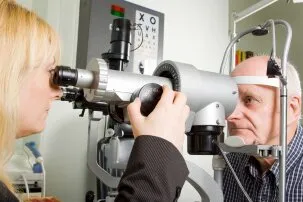An Ophthalmic Medical Technician (OMT) is a specialized healthcare professional who works alongside ophthalmologists and optometrists to provide patient care in a clinical setting. OMTs are responsible for conducting a variety of diagnostic tests and procedures to assist in the evaluation and treatment of eye conditions and diseases.
One of the primary roles of an OMT is to perform preliminary eye exams and gather patient medical histories. They may also assist with advanced diagnostic tests, such as visual field testing, retinal imaging, and optical coherence tomography (OCT). OMTs are trained to operate and maintain advanced ophthalmic equipment, ensuring accurate and reliable test results.
OMTs also play a crucial role in patient education and support. They often provide instructions on proper contact lens insertion and removal, as well as pre- and post-operative care for patients undergoing eye surgeries. Additionally, OMTs may assist in the fitting of contact lenses and eyeglasses, as well as provide guidance on proper eye care and hygiene practices.
In addition to their clinical duties, OMTs may also be responsible for administrative tasks, such as scheduling appointments, maintaining patient records, and managing inventory and supplies. They must also adhere to strict patient confidentiality and ethical standards in their work.
To become an Ophthalmic Medical Technician, individuals typically complete a specialized training program or certification in ophthalmic medical assisting. This may include coursework in anatomy and physiology, eye diseases and disorders, ophthalmic imaging, and clinical procedures. Many OMTs also pursue certification through organizations such as the Joint Commission on Allied Health Personnel in Ophthalmology (JCAHPO) to demonstrate their expertise and commitment to professional development.
Overall, Ophthalmic Medical Technicians play a vital role in supporting eye care professionals and ensuring the delivery of high-quality patient care in ophthalmic clinics and practices.

